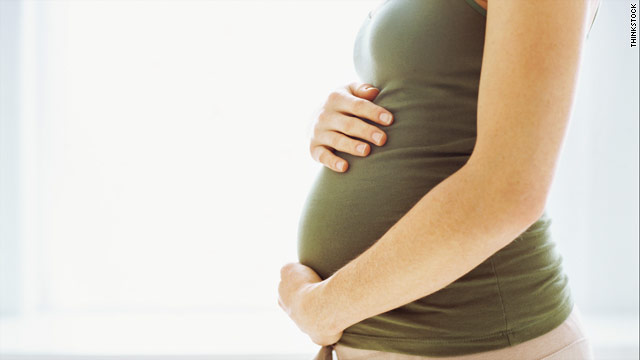Miscarriage? Try again ASAP, study suggests

- Study: Women who conceive within six months of miscarriage reduce risk of another
- Other factors might have been responsible for the different outcomes in the study
- Doctor says decision about when to try again is "ultimately a personal one"
(Health.com) -- When women have a miscarriage, one of the first questions they often ask is how long they should wait before getting pregnant again. A new study suggests that the sooner they start trying, the better.
Women who conceive within six months of a miscarriage instead of waiting up to a year reduce their risk of another miscarriage by one-third, and they also increase their chances of a healthy and successful pregnancy, according to the study, which appears in the journal BMJ.
Even though as many as 1 in 5 pregnancies end in miscarriage, recommendations for getting pregnant afterward are all over the map. Many doctors tell women to wait until after a normal menstrual cycle, while others advise waiting up to 18 months. The World Health Organization recommends waiting at least six months.
The six-month window highlighted in the study is "faster than most people would have thought," says ob-gyn Catherine Spong, M.D., the chief of the Pregnancy and Perinatology branch of the National Institutes of Health.
Health.com: Lower Your Miscarriage Risk
The findings don't mean that women should rush to conceive after losing a pregnancy, but they do suggest that women who feel ready to try again right after a miscarriage will have good outcomes, says Spong, who was not involved in the new study.
Much of the evidence supporting a wait of six months or more comes from developing countries, where medical care is less reliable and where women tend to get pregnant at earlier ages.
Health.com: My Miscarriage Was Misdiagnosed
In countries such as the United States and the United Kingdom, by contrast, many women delay pregnancy due to career or financial concerns. And for a woman in her 30s who has experienced a miscarriage, the authors write, "Any delay in attempting conception could further decrease the chances of a healthy baby."
In the study, researchers at the Aberdeen Maternity Hospital, in Scotland, analyzed the hospital records of nearly 31,000 women whose first pregnancy ended in miscarriage. Just over 40 percent of the women conceived again within six months, and another 25 percent did so between six and 12 months.
Health.com: Couples at Greater Risk of Breakup After Pregnancy Loss
Compared with the latter group, the women who conceived within six months were 34 percent less likely to have another miscarriage and more than half as likely to experience an ectopic pregnancy, in which the embryo attaches outside the uterus.
The women who conceived within six months also had better overall outcomes. They were about 10 percent less likely to have a C-section or a preterm delivery, and about 15 percent less likely to have a baby of low birth weight than the women who waited up to a year.
Health.com: Recipes for a Healthy Pregnancy
This study is not the last word on the subject, however. Although the researchers took the women's socioeconomic status and age into account, it's possible that factors other than the time between pregnancies were responsible for the different outcomes. For instance, women who get pregnant immediately after a miscarriage may be more motivated and health-conscious than women who prefer to wait, the study suggests.
"We cannot really tell whether pregnancies conceived very soon after a miscarriage really do have better outcomes, or whether women (and couples) who conceive quickly following a miscarriage have better outcomes in a subsequent pregnancy than couples who take longer to conceive," says Julia Shelley, Ph.D, an associate professor at Deakin University, in Burwood, Australia, who co-wrote an editorial accompanying the study.
Health.com: Babies After 40: The Hidden Health Risks
Although this research is likely to influence the advice that some ob-gyns give their patients, Spong says, she stresses that the decision about when to get pregnant after a miscarriage is ultimately a personal one that depends on a woman's emotional and physical state, her family situation, and what -- if anything -- prompted the miscarriage. "You can't make a blanket statement," she says.
Still, she adds, the study sheds some much-needed light on a little-understood area. "It's clearly an important question that people need and want to know the answer to," Spong says.
Copyright Health Magazine 2011

